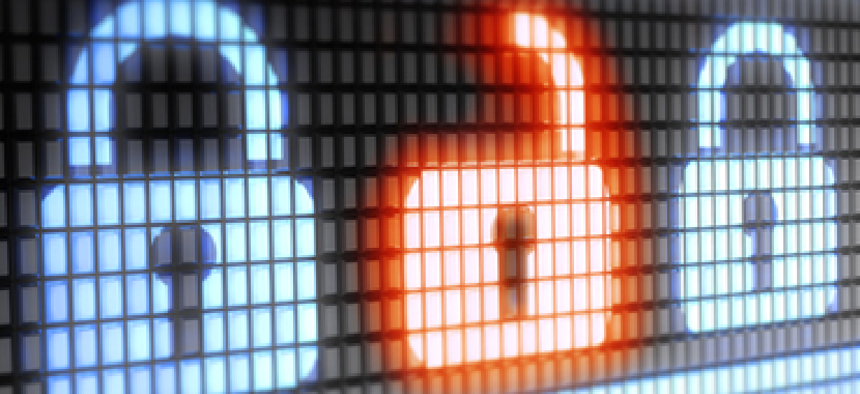DHS bans Kaspersky from federal systems

The Department of Homeland Security banned the Russian cybersecurity company Kaspersky Lab’s products from federal agencies in a new binding operational directive.

The Department of Homeland Security ordered all executive branch agencies to discontinue and remove all Kasperksy Lab products from their systems.
Agencies have 30 days to identify Kaspersky products in use on their systems and 60 days develop plans to remove those products. After 90 days, agencies must begin to implement plans to remove Kaspersky products, unless instructed otherwise.
According to DHS, Kaspersky Lab antivirus products provide broad access to federal information systems and could potentially be used by "malicious cyber actors" to gain access.
DHS cites concerns about "ties between certain Kaspersky officials and Russian intelligence and other government agencies" and Russian laws that may compel the company to assist Russian intelligence agencies to intercept communications traveling over Russian networks.
"The risk that the Russian government, whether acting on its own or in collaboration with Kaspersky, could capitalize on access provided by Kaspersky products to compromise federal information and information systems directly implicates U.S. national security," DHS said.
Sen. Jeanne Shaheen (D-N.H.) was pleased with the move. "Applaud DHS for heeding my call to remove all Kaspersky products from fed agencies. Kaspersky is a direct threat to national security," Shaheen tweeted after the announcement.
For months, U.S. government officials and members of Congress have been expressing alarm and concern about Russian-based cyber firm Kaspersky Lab. In July, Kaspersky Lab was removed from two governmentwide contract vehicles: General Services Administration's Schedule 70 contract and NASA's SEWP vehicle.
Later that same month, the House Science, Space and Technology committee sent a letter asking cabinet agencies and departments for any records they have related to the purchase or use of Kaspersky Lab products.
The release said that DHS is providing the company an opportunity to submit a written response to address the department's concerns. Though military and intelligence officials as well as members of Congress have gone on record expressing their concerns or doubts about the company, the government has yet to release or make public any evidence that would prove or suggest Kaspersky Lab products have been compromised by Russian intelligence agencies. The government has also not clarified whether it is relying on classified information or other sources to reach its conclusions .
Kaspersky Lab founder Eugene Kaspersky has denied allegations that his company is conducting espionage on behalf of Russia and said the U.S. government lacks evidence to justify the move.
"I trust DHS to make these decisions," said Rep. Will Hurd (R-Texas), speaking Sept. 13 at the Billington Cybersecurity Conference. Hurd, a former CIA agent who sits on the Intelligence, Homeland Security and Oversight panels in the House, wasn't ready to predict retaliation from Russia over the move.
"We'll see," Hurd said. "I don’t think getting in a tit for tat with Russia is in anybody's interest."
In a Sept. 13 statement attributable to Kaspersky Lab, the company said it was "disappointed" by the DHS order, but "grateful for the opportunity to provide additional information to the agency in order to confirm that these allegations are completely unfounded." The statement also argued that DHS was misinterpreting Russian law when it made its determination.
Few agencies use Kaspersky products on a stand-alone basis, but they are embedded into computers, mobile devices and routers widely used in the government and the private sector.
The next sprint
"After the Cyber Sprint, I was often asked by agency and industry personnel when we were going to issue the next sprint. For better or worse, it appears the next sprint has arrived," said Trevor Rudolph, former chief of the Office of Management and Budget Cyber and National Security Unit.
The National Institute of Standards and Technology released a set of metadata and file hashes for systems administrators and IT workers to use to identify Kaspersky applications in support of the DHS directive.
But finding the applications is just the first step, one former federal cybersecurity official told FCW.
"This is all workload that organizations are not staffed or resourced to do," he said, noting that agency cybersecurity staffers are already busy with FISMA, implementing the president's cybersecurity executive order and the latest iteration of the Continuous Diagnostic and Mitigation contract.
"So what now is not going to get done?" the former official asked.
It remains to be seen what role there is to play for vendors who license Kaspersky products on their devices.
"This directive could certainly impact other vendors and require significant configuration changes and updates across the board," Rudolph said.
The former official told FCW that, "those vendors have to come to the table and help develop a solution -- this is new territory for everyone."
This article was updated Sept. 13 to add additional reactions to DHS' Kaspersky Lab announcement.
FCW staff writer Lauren C. Williams contributed to this story.


